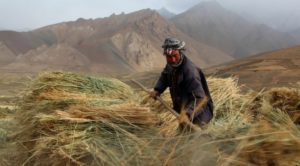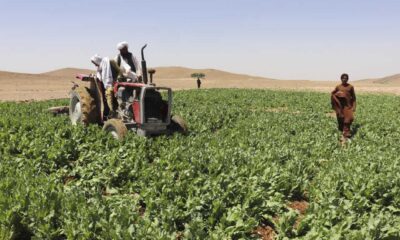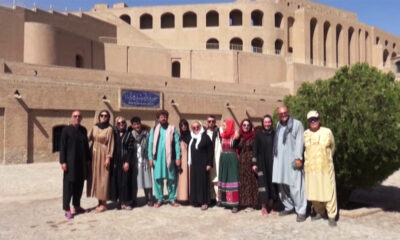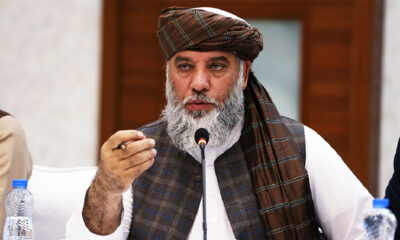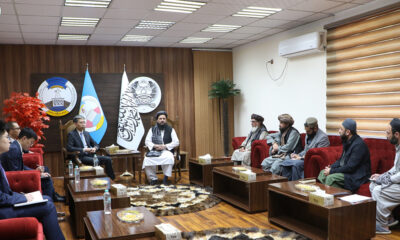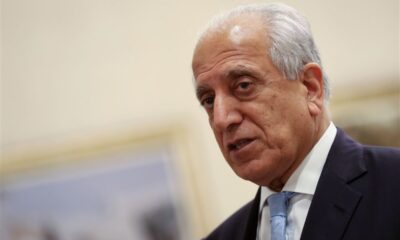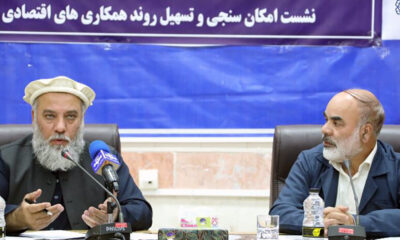Business
Afghanistan’s Economy Projected to Remain at 2.5 Percent Growth in 2019: ADB

Afghanistan’s economy is projected to remain at 2.5 percent growth in 2018 and 2019 due to the challenging security and political situations in the country, a new Asian Development Bank (ADB) report says.
In its Asian Development Outlook (ADO) 2018, ADB noted that preliminary gross domestic product (GDP) growth for Afghanistan in 2017 was 2.5%, up only slightly from 2.4% in 2016, as a tenuous political situation and worsening security limited economic growth.
“..The most important thing we do is that we are involved with the government here [in Afghanistan] at a policy dialogue; e. g. we have the transport sector, we have been investing a lot, we have about $2 billion of investments in roads in Afghanistan,” said Samuel Tumiwa, ADB Country Director for Afghanistan.
“We have to help the Public Works Ministry to maintain those roads, right now road maintenance needs to be improved in Afghanistan, so we are helping with policies and regulations at the ministry to improve road maintenance,” he said.
According to the report, the domestic investment remained steady in 2017, equal to 18.5% of GDP. Private investment is estimated at only 8% of GDP in 2017, reflecting a lack of confidence in political and security conditions. Public investment increased by 8% in nominal terms over 2016 as the execution rate improved from 54% that year to 67% in 2017 with better budget planning, simplified execution rules, and more authority delegated to line ministries.
Security and the political situation remain concerns in Afghanistan’s economic outlook. Security is unstable, particularly in Kabul, and the country is likely to experience greater political uncertainty due to friction within the National Unity Government. Parliamentary elections are scheduled for 2018 and a presidential election in 2019, which could cause businesses to adopt a wait-and-see approach.
The ADB report noted that the government has attracted very little private investment, estimated to equal 8.0% of GDP, well below the average of 20.8% in the region. “This shortcoming is a major constraint on economic growth, job creation, and reduced dependence on donor aid from abroad,” it said.
The report suggested that the government should maintain its efforts toward regional cooperation.
According to ADB, connectivity and open trade with neighbors can attract more private investment as regional markets become more open.
“On top of the commercial benefits of regional cooperation, a peace dividend would give neighboring countries a greater stake in peace and stability in Afghanistan through economic links and opportunities,” it said.

Business
Turkmenistan business delegation visits Herat
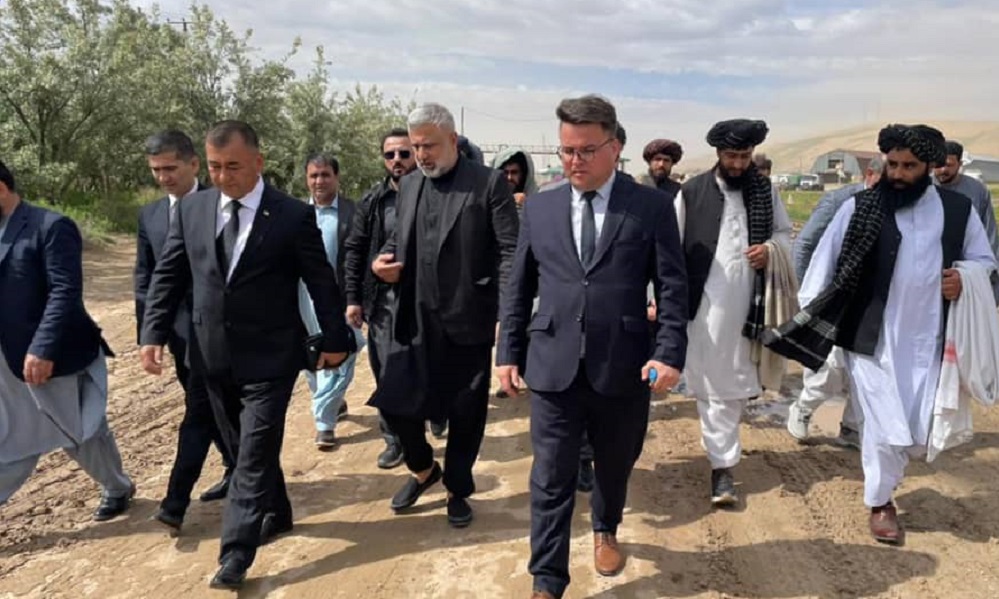
Nokerguly Atagulyev, the head of the Union of Industrialists and Entrepreneurs of Turkmenistan, has visited Herat province for trade talks, the Ministry of Industry and Commerce announced on Saturday.
The ministry said in a statement that the purpose of the Turkmen delegation’s visit is to help reduce Afghanistan’s trade deficit, to foster commercial and economic cooperation, examine Afghanistan’s proposal for the supply of construction materials, especially marble and iron bars and for the growth of trade and transit between the two countries.
The delegation is also expected to meet with officials and private sector representatives, and visit commercial and industrial sites of Afghanistan, especially in Herat province.
The visit comes after Nooruddin Azizi, Acting Minister of Industry and Commerce’s trip to Turkmenistan. The aim is to open the first Afghan-Turkmen Business Forum and discuss the import of construction materials, especially marble and iron bars from Afghanistan.
Business
IEA plans regional energy trade hub with Russian oil in mind
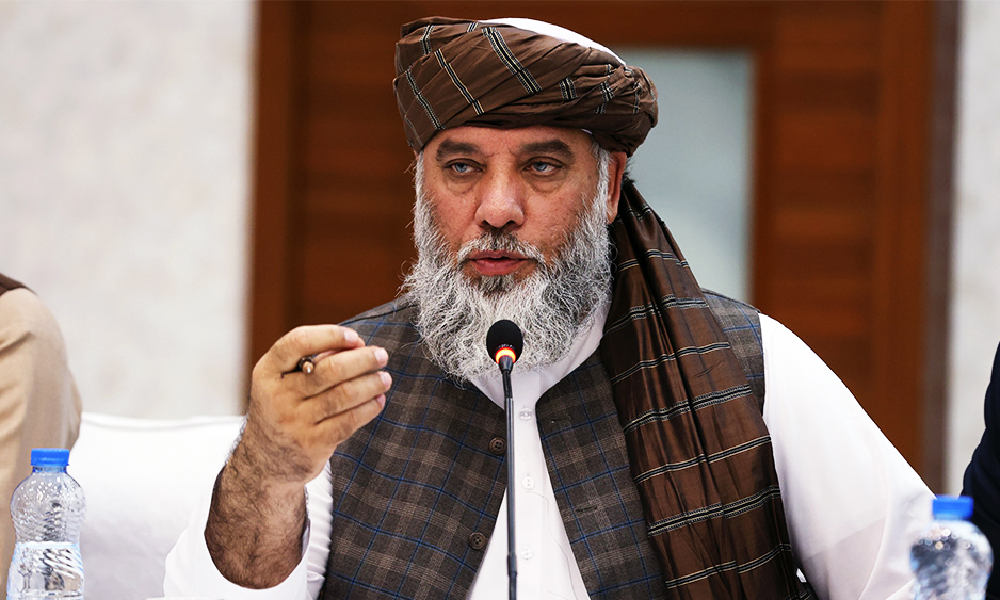
The Islamic Emirate of Afghanistan (IEA) has agreed with Kazakhstan and Turkmenistan to build a logistics hub in western Afghanistan aimed at making the war-torn nation a major logistics point for regional exports, including oil from Russia to South Asia, the country’s commerce minister said.
Following a meeting between representatives of the three countries in the Afghan capital last week, IEA’s acting commerce minister Nooruddin Azizi told Reuters that technical teams would draw up a written agreement within two months on the formal plans for the hub, which all three countries would invest in after six months of talks.
As foreign aid to Afghanistan falls and the predominantly agricultural economy is marred by persistent drought, its officially unrecognised IEA government has faced questions over how to fund development and avoid economic stagnation, Reuters reported.
Azizi said the new hub was part of broader efforts to take advantage of Afghanistan’s strategic location, once a thoroughfare for the ancient Silk Road trade route, lying between South and Central Asia and sharing borders with China and Iran.
“Based on our discussions, a logistics centre is going to be established in Herat province, which can connect the north to South Asia,” Azizi said, adding that the Taliban (IEA) was eyeing the millions of tons of oil they expected Russia would be selling in coming years to South Asian countries, particularly Pakistan, to pass through the new hub.
“The three countries have done their best to prove Afghanistan’s claim as a connectivity point,” he said.
“Reaching Pakistan through Afghanistan will be the best option,” Azizi added, saying they were focused on Russia’s petroleum exports and that Kazakhstan was also planning to export goods through Herat into South Asian markets.
Kazakhstan’s trade ministry said in a statement to Reuters that it wanted to develop roads and a railway through Afghanistan to connect with South Asia and the Gulf, with the hub serving as an important logistics point.
“The creation of the hub will allow for the development of multi-modal services by consolidating truck shipments in the dry port where they will be sorted and sent along railroads on the North-South corridor to sea ports in the Gulf, Pakistan, and Indian Ocean, towards India,” the statement said.
Azizi said the logistics hub’s initial capacity would be one million tons of oil but he did not give a date for when it would be operational.
Turkmenistan’s government did not immediately respond to a request for comment and the Russian government did not respond to a request for comment during a national holiday.
Pakistan’s foreign office and energy minister did not respond to a request for comment. Pakistan is a major trading partner with Afghanistan and has signed on to regional energy connectivity agreements, Reuters reported.
However, Islamabad has had strained relations with the IEA in recent years over accusations Afghanistan is harbouring anti-Pakistan militants, which Kabul denies.
Cash-strapped Pakistan last year became Russia’s latest customer, snapping up discounted crude that has been banned from European markets due to Russia’s war on Ukraine.
Afghanistan also buys oil, gas and wheat from Russia at discounted rates.
Azizi said that the IEA was also speaking with Chinese authorities on building a road through the remote, narrow Wakhan corridor that connects Afghanistan with China and that they hoped Afghanistan would eventually develop into a route for trade between China and Iran. He said Afghan commerce ministry officials had been recently been sent to China for training.
Business
Aziz discusses trade issues while on visit to Iran
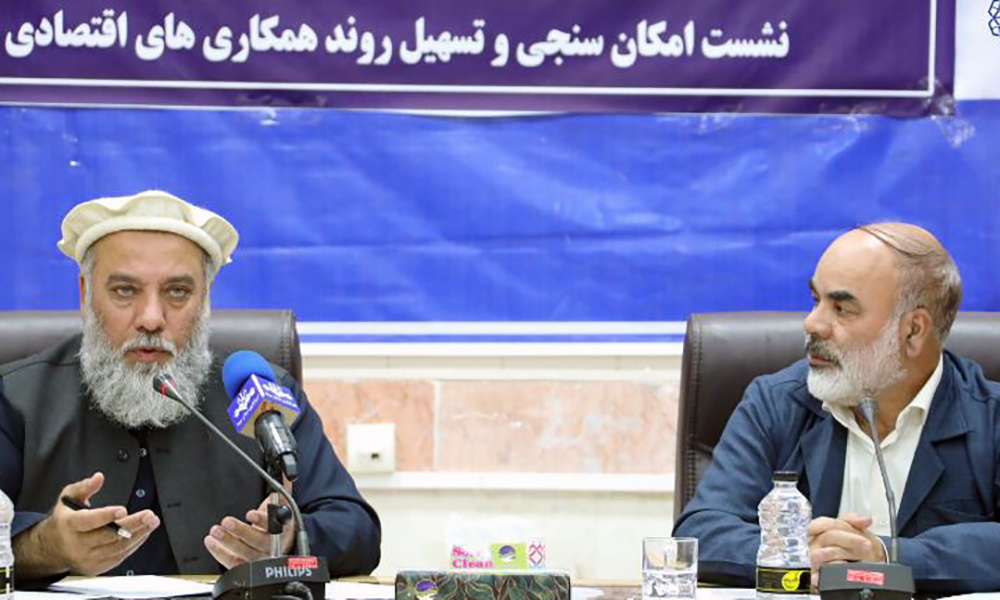
Acting Minister of Commerce and Industry of the Islamic Emirate of Afghanistan Nooruddin Azizi arrived in Iran’s Sistan and Baluchistan Province on Thursday for a meeting on facilitating the process of economic cooperation between the two countries.
The ministry’s spokesman Abdulsalam Javadakhandzadaa said Thursday the minister discussed the development of trade and transit relations between Iran and Afghanistan – but with the focus on the province of Sistan and Baluchistan.
Aziz also discussed the need to strengthen processes for goods through Chabahar port and emphasized the need to resolve issues relating to this trade route.
According to Javadakhandzadaa officials of the two countries discussed the strengthening of commercial and economic cooperation, while Azizi requested that costs be lowered for goods and for land to be made available in Chabahar to Afghan businessmen and for railway facilities to be provided.
Both sides agreed that in order to develop trade between the two countries and to strengthen transit through Chabahar, a joint technical committee would be established on a provincial level and that issues will be followed up by the central committee.
-

 Sport5 days ago
Sport5 days agoNew Zealand to go ahead with Afghanistan cricket Test
-

 Latest News5 days ago
Latest News5 days agoWorld Bank donates $84 million to Afghanistan
-

 Latest News5 days ago
Latest News5 days agoWork permits issued to over 2,000, including women: Labor Ministry
-

 Sport5 days ago
Sport5 days agoAll-round Stoinis helps Lucknow beat Mumbai in IPL
-

 Sport4 days ago
Sport4 days agoSorkh Poshan Khafi and Khadim FC winners in their ACL matches
-
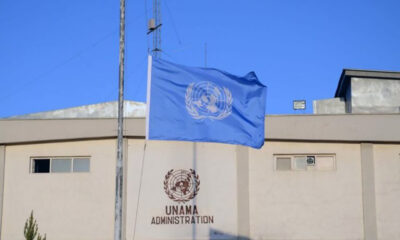
 Latest News4 days ago
Latest News4 days agoUNAMA issues latest rights report, notes ongoing challenges for women, girls and media
-

 World3 days ago
World3 days agoWhy Palestinians can count on American students but not Arab allies to protest
-

 Sport3 days ago
Sport3 days agoAbu Muslim and Attack Energy win in ACL matches

